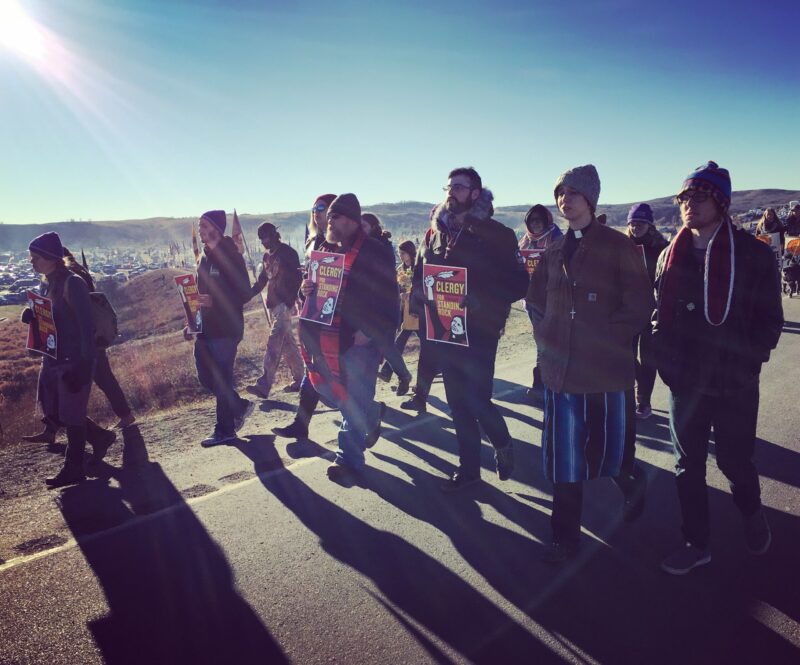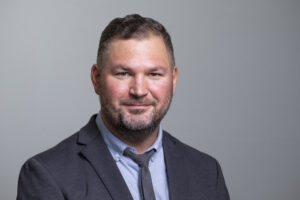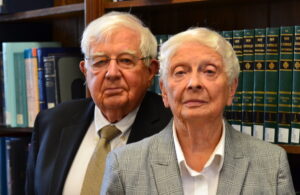Reconnecting with God and Land
An Interview with Graduating Student Praveen Raj Climate change is too often discussed as an existential crisis instead of a […]
The Center for Ecological Regeneration exists to spread regenerative eco-theological understandings, earth-based religious practices, and cooperative solidarities for the just healing of wounded socio-ecological relationships in the Midwest bioregion and beyond.

The Center seeks a life-sustaining and socially just future for all peoples and places, with an embedded focus on our Midwest bioregion. This includes healthy soils, water, and air, a stable climate, and bio-diverse habitats, as well as reparative human economies, cultures, and lifestyles integrated within the rhythms and needs of the earth.

The Center’s work encompasses five interconnected areas related to eco-theological education, spiritual and communal formation, institutional integration, internal and external collaboration, and regenerative action.

We live in a time of accelerating planetary crises related to climate change, environmental degradation, and biodiversity loss. Although these crises ultimately threaten the wellbeing of all humans, they especially bear upon those already suffering from economic exploitation, racism, hetero-sexism, age discrimination, ableism, and related forms of social inequity.
The cultural roots of these entwined crises are many but include distorted theological understandings and religious practices that have contributed to and even justified social and environmental harm. As such, the work of justly transitioning toward more life-sustaining and democratic societies, institutions, and communities requires the contributions of both ecological theological perspectives and earth-based religious practices that foster healing solidarities among threatened humans, other-than-human creatures, and the earth systems that make up our planetary home.
The work of social and ecological repair is a global task requiring worldwide collaboration. At the same time, bioregional approaches that turn our attention to the local geographies and cultures in which we’re embedded can help ground our efforts in partnership with the particular places, institutions, and peoples of which we are members.
Garrett-Evangelical Theological Seminary is located on the campus of Northwestern University in Evanston, IL. The campus sits on the traditional homelands of the people of the Council of Three Fires, the Ojibwe, Potawatomi, and Odawa, as well as the Menominee, Miami, and Ho-Chunk nations. Garrett is an ecumenical Christian seminary of the United Methodist Church, historically embedded in the Chicago region, with longstanding denominational, interfaith, and public ties throughout the Midwest and beyond. The seminary’s placement just north of “Nature’s Metropolis” in the middle of North America focuses practical theological attention in our bioregion on a range of past and present socio-ecological injustices and reparative possibilities across urban, suburban, and rural landscapes related to food and agriculture, environmental justice, indigenous sovereignty, infrastructure and built environments, land use, energy, water, wildlife, and more.
Regeneration refers to the capacities of all life – human and more-than-human – to generate healing responses following occurrences of damage, disturbance, or degradation. To speak of ecological regeneration is to affirm both the possibility and the aim of actively participating in the repair of damaged landscapes, habitats, and earth systems. The term is increasingly prominent in environmental circles as a way of emphasizing the need to move our thinking and action beyond just sustainability (i.e. the preservation of the status quo) or even resilience (i.e. the capacity to endure and adapt amidst disruptions). In a time of widespread ecological damage, what’s required are responses that actively contribute to the healing of soils, watersheds, plant and animal life, ecosystems, and more through approaches like regenerative agriculture, regenerative cultures, and regenerative economies.
Regeneration is also a theological and spiritual term, associated with concepts like resurrection, revival, new creation, new birth, sanctification, and theosis or divinization. In fact, it’s central to Wesleyan-Methodist traditions, among others, and communicates trust in God’s capacities to bring about new life and new possibilities through the resurrecting energies of the Holy Spirit amidst the very worst of human sins that lead to estrangement, harm, and even death.
“I know of no restorative of heart, body, and soul more effective against hopelessness than the restoration of the earth.” – Barry Lopez
“If citizenship is a matter of shared beliefs, then I believe in the democracy of species. If citizenship means an oath of loyalty to a leader, then I choose the leader of the trees. If good citizens agree to uphold the laws of the nation, then I choose natural law, the law of reciprocity, of regeneration, of mutual flourishing.” – Robin Wall Kimmerer
“I am confident that the distinctive Wesleyan-Methodist mark of a holistic faith in the regenerative powers of God for new life is a theological, spiritual, and ecclesial gift we United Methodist Christians are particularly equipped to contribute in an age of profound environmental destruction.” – Timothy Eberhart
At the most basic level, being committed to the just repair of creation is intimately connected to the central mark of Christian discipleship, which is loving God with one’s whole life and loving one’s neighbor as oneself. To affirm that God is Creator necessarily calls for a basic reverence and respect for all that God has brought into being and called good. Additionally, we know that human life is sustained in and through intricate webs of soil, water, air, minerals, plants, animals, and more, and that to do harm to these interconnected webs is to do harm to human beings as well. It’s clear that the capacity of the good earth to sustain life, human or otherwise, is profoundly threatened. And at the moment, it is those already suffering under the burdens of injustice and inequity who have been and are suffering the worst effects – the world’s poor from so-called under-developed nations and rural communities and those who skin colors are darker hued, including indigenous peoples, women, children, and the elderly.
All of this has enormous implications for the shape of religious education and formation today. What does it look like to lead worship and preach about divine will in communities impacted by unprecedented flooding, wildfires, or other disasters? How do you offer pastoral care and counseling to climate refugees? What is the meaning of hope, of repentance, of conversion, of doing justice amidst what some scientists are calling the sixth great extinction event? We think it would be irresponsible as a seminary not to be responding faithfully with resources from the Christian tradition – theological, spiritual, communal, sacramental, practical – at such a time as this.
“We, as Christians, have a biblical mandate to protect this planet and protect our brothers and sisters who are suffering due to the ecological crisis facing our world. And the wonderful nature of this program is that it recognizes the theological perspective of the stewardship of our planet, and it recognizes the importance of teaching our students how to discuss these issues in theological terms.” – Robert K. Phillips (trustee)
Our religious traditions have a crucial role to play in the reparative work of transitioning toward a more life-sustaining and just future. In fact, a growing number in the scientific community are looking to the world’s religious traditions for moral leadership on issues of global environmental concern. It’s one thing to gather and interpret information about the state of the biosphere. It’s another to inspire people around a vision of the common good, to tap into deep motivations for personal and social change, to provide basic cultural frameworks of meaning and purpose, and to mobilize communities for widespread collective action.
At the same time, those of us who are stewards of a particular religious tradition bear the responsibility of examining how our theological/philosophical teachings, sacred symbols and metaphors, and religious practices have contributed to the ecological crises we are facing. For Christians, that means interrogating, for example, our most basic beliefs about divinity’s relationship to and presence in the world, about the meanings of sin and salvation, about what it means to be created in the image of God, and about the nature of following Jesus and walking in the Spirit. The problems we face are not primarily technological or scientific. They’re cultural, spiritual, moral, and formational, which is precisely why, amidst all of the many contributions that are required today, we’re going to need religious leaders equipped to cultivate and spread regenerative eco-theological perspectives, earthy spiritualities, and practical religious strategies for the just healing of the earth.
“Climate change is really much more of a human, cultural problem and less of a scientific problem. We have to change our behavior and our mindset if we are ever going to make the necessary changes.” – Joshua Richardson, Conservation Biologist, Ecological Regeneration concentration alum
Centering the voices of leading Chicagoland Environmental justice (EJ) advocates, the Evanston EJ Justice Conversation Series provides a biannual, accessible community forum fostering rich conversation between community members, EJ advocates, and civic, religious, and academic leaders from the Evanston community and beyond.
The keynote speaker will be Maria Hadden. Maria Hadden, alderwoman of the 49th Ward, is the first Black, queer woman elected to Chicago City Council. A servant-leader with a background in community organizing and participatory democracy, Maria is an independent, progressive champion of the people in the City Council. She represents the 49th Ward – dubbed, “Little Chicago,” because of the racial, ethnic, and economic demographics that most reflect Chicago’s diversity. She serves as the Co-Chair of the Progressive Caucus and Chairwoman of the Committee on Environmental Protection and Energy. She is also a member of both the Aldermanic Black Caucus and the LGBTQ Caucus – the nation’s largest.
Madalene Big Bear (Bodwéwadmi) is a citizen of the Pokagon Band of Potawatomi Nation and a culture bearer who enjoys sharing her knowledge in many forms, including stories. Although entertaining, storytelling is also an important way to convey customs, language, history, and identity to descendants and those who are invited to listen. Madalene is also a respected Pokagon culture keeper. A talented professional and artist, she often teaches others about indigenous culture. Her areas of expertise include material culture, contemporary life ways, culinary traditions, art, and storytelling.
1:00 – 3:00 pm CST
Location: Fleetwood-Jourdain Community Center
The keynote speaker will be Cheryl Johnson from People for Community Recovery in Chicago followed by an intergenerational panel with Janet Alexander Davis, Co-chair Environmental Justice Evanston of Climate Action Evanston, Isabel Bernal, High School Student from Evanston Cradle to Career, and Nicole Hoskins, Assistant Professor at the University of Scranton and Garrett Scholar-In-Residence.
Centering the voices of leading Chicagoland environmental justice advocates, the Evanston Environmental Justice Conversation Series provides a biannual, accessible community forum fostering rich conversations between community members, environmental justice advocates, and civic, religious, and academic leaders from the Evanston community and beyond. The Series will focus on local and national issues shaping the contemporary struggle for environmental justice. It is made possible through a partnership between The Center for the Church and the Black Experience and the Stead Center for Ethics and Values at Garrett-Evangelical Theological Seminary and the Evanston/North Shore branch of the NAACP.
Welsh-Ryan Arena, 12pm-5pm general admission free



This online guide includes resources from the Styberg Library as well as free online resources. These have been curated through a partnership between the Styberg Library and the Center for Ecological Regeneration.
 Rev. Dr. Timothy Reinhold Eberhart is the Robert and Marilyn Degler McClean associate professor of ecological theology and practice. Eberhart joined the faculty of Garrett-Evangelical in 2010 and was promoted to associate professor in the spring of 2020. In 2017, he was named director of the Master of Arts in Public Ministry program that he helped design and implement, as well as advisor for a new concentration in ecological regeneration.
Rev. Dr. Timothy Reinhold Eberhart is the Robert and Marilyn Degler McClean associate professor of ecological theology and practice. Eberhart joined the faculty of Garrett-Evangelical in 2010 and was promoted to associate professor in the spring of 2020. In 2017, he was named director of the Master of Arts in Public Ministry program that he helped design and implement, as well as advisor for a new concentration in ecological regeneration.
Eberhart, who grew up in South Dakota, earned a bachelor of arts in religion from St. Olaf College, master of divinity degree from Vanderbilt Divinity School, and doctor of philosophy from the Graduate School at Vanderbilt University. He has taught courses in theology, Christian ethics, and practical ministry at Dakota Wesleyan University, Vanderbilt University, the Methodist Theological School in Ohio, and Garrett-Evangelical.
A sought-out speaker, Eberhart has lectured and led workshops at institutions and churches throughout the nation in the areas of ecological, economic, agricultural, and racial justice. His publications include Rooted and Grounded in Love: Holy Communion for the Whole Creation (Wipf and Stock, 2017), The Economy of Salvation: Essays in Honor of M. Douglas Meeks (Wipf and Stock, 2015), and chapters on mission, ecclesiology, theological education, and ecotheology.
After coming to Garrett-Evangelical, Eberhart directed the seminary’s Course of Study School from 2012-2015, during which he oversaw the implementation of a new residential/online hybrid model of education. He has led numerous environmental initiatives at the seminary, including Garrett-Evangelical’s founding role in the Seminary Stewardship Alliance and the completion of a three-year Green Seminary Initiative certification as a Green Seminary. He has also participated with students in a variety of protest movements in Chicagoland and beyond, including Occupy Wall Street, Black Lives Matter, Standing Rock, and Fridays for Future Climate Strikes. In 2021, he received the Exemplary Teacher of the Year Award from the General Board of Higher Education and Ministry for his support of students, curricular contributions, and public initiatives.
Eberhart is an ordained elder in the Dakotas Conference of The United Methodist Church and has served in youth, campus, young adult, and congregational ministries and on numerous boards and committees for the denomination. He is the current North American Secretary for the Oxford Institute of Methodist Theological Studies, a co-founder and co-chair of The Institute for Christian Socialism, and a co-founder and Advisory Team member of the UMC Creation Justice Movement. At the local level, Eberhart has served on the steering committee for Leadership Evanston, the board of Citizens Greener Evanston, where he was active with the Environmental Justice Evanston Committee, and the city of Evanston’s Equity and Empowerment Commission.
 L. Robert (GBI 1959) and Marilyn (Degler) McClean (GBI 1958) established the Robert and Marilyn Degler McClean Chair in Ecological Theology and Practice in 2022. In addition, they have provided significant support for the work of the Center for Ecological Regeneration.
L. Robert (GBI 1959) and Marilyn (Degler) McClean (GBI 1958) established the Robert and Marilyn Degler McClean Chair in Ecological Theology and Practice in 2022. In addition, they have provided significant support for the work of the Center for Ecological Regeneration.
Garrett-Evangelical is proud to claim both Robert and Marilyn (Degler) McClean as distinguished alums of the seminary. In 2019, they were inducted into the seminary’s Founders Society.
In addition to their annual leadership support, Robert and Marilyn have also made a significant planned gift commitment to the seminary to create an endowment fund, with the earnings to be used to support programs, faculty, and/or scholarships that promote international justice, peace, and ecology — areas that reflect their own lifelong values.